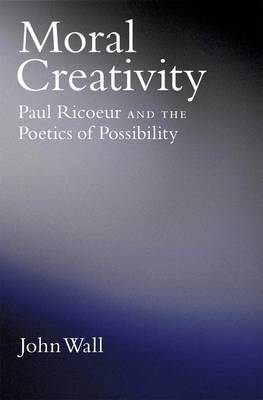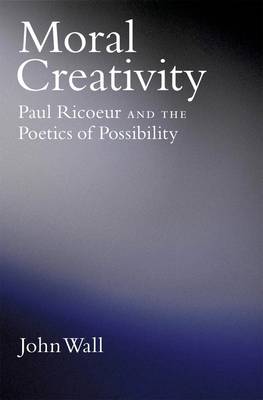
- Afhalen na 1 uur in een winkel met voorraad
- Gratis thuislevering in België vanaf € 30
- Ruim aanbod met 7 miljoen producten
- Afhalen na 1 uur in een winkel met voorraad
- Gratis thuislevering in België vanaf € 30
- Ruim aanbod met 7 miljoen producten
Zoeken
Omschrijving
In Moral Creativity, John Wall argues that moral life and thought are inherently and radically creative. Human beings are called by their own primordially created depths to exceed historical evil and tragedy through the ongoing creative transformation of their world. This thesis challenges ancient Greek and biblical separations of ethics and poetic image-making, as well as contemporary conceptions of moral life as grounded in abstract principles or preconstituted traditions. Taking as his point of departure the poetics of the will of Paul Ricoeur, and ranging widely into critical conversations with Continental, narrative, feminist, and liberationist ethics, Wall uncovers the profound senses in which moral practice and thought involve tension, catharsis, excess, and renewal. In the process, he draws new connections between sin and tragedy, practice and poetics, and morality and myth. Rather than proposing a complete ethics, Moral Creativity is a meta-ethical work investigating the creative capability as part of what it means, morally, to be human. This capability is explored around four dimensions of ontology, teleology, deontology, and social practice. In each case, Wall examines a traditional perspective on the relation of ethics to poetics, critiques it using resources from contemporary phenomenology, and develops a conception of a more original poetics of moral life. In the end, moral creativity is a human capability for inhabiting tensions among others and in social systems and, in the image of a Creator, creating together an ever more radically inclusive moral world.
Specificaties
Betrokkenen
- Auteur(s):
- Uitgeverij:
Inhoud
- Aantal bladzijden:
- 244
- Taal:
- Engels
- Reeks:
Eigenschappen
- Productcode (EAN):
- 9780195182569
- Verschijningsdatum:
- 11/08/2005
- Uitvoering:
- Hardcover
- Formaat:
- Genaaid
- Afmetingen:
- 156 mm x 234 mm
- Gewicht:
- 526 g

Alleen bij Standaard Boekhandel
+ 515 punten op je klantenkaart van Standaard Boekhandel
Beoordelingen
We publiceren alleen reviews die voldoen aan de voorwaarden voor reviews. Bekijk onze voorwaarden voor reviews.











